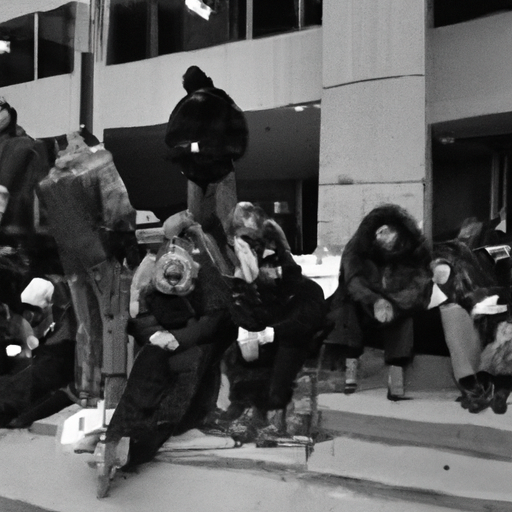The Canadian Opioid Crisis: The Wake-up Call We Can’t Ignore
The ongoing opioid crisis continued to wreak havoc in Canada, noticeably affecting communities and families nationwide. Our country is witnessing a sharp escalation in opioid dependence, overdose, and death rates – a growing issue that demands our collective attention and immediate action. A pressing concern that recently emerged pertains to the closure of a drug addiction program at McGill University Health Centre. It rings an alarm for the people directly affected by the opioid crisis, their families, and Canada’s healthcare system.
The Closure of the Drug Addiction Program
The decision to close the drug addiction program at McGill University Health Centre, one of the pillars of Montreal’s healthcare network, poses imminent risks to both the Ottawa and Quebec communities. The program catered to an increasing population of people suffering from opioid addiction. The closure of this essential service presents significant implications:
- Relapse of patients into drug addiction due to the absence of proper intervention services.
- Surge in the already high opioid-induced death rates.
- Increased pressure on the healthcare system due to the rise in opioid-related cases.
Opioid Crisis and Quebec Homeless
The opioid crisis also significantly affects Quebec’s homeless population, offering yet another facet of the pressing crisis. The members of the homeless community are at a higher risk of opioid addiction, overdose, and death. A lack of habitable shelters, coupled with the universal issue of social isolation, fuels this trend. The closure of support programs like the one at McGill University further exacerbates this issue, pushing the homeless people deeper into the abyss of opioid abuse.
Impacts on Canadian Society
Besides the evident health implications, opioid dependency also causes significant socioeconomic impacts such as crime rates, loss of productivity in workplaces, and increased healthcare costs. Subsequently, these influences translate into burdens on the justice and health systems, among other societal elements.
Efforts to Combat the Opioid Crisis
Amid this rising crisis, several measures are being undertaken. Opioid abatement class actions were filed in many provinces, hinting towards some resolute steps taken towards abating this crisis. This Canadian opioid abatement class action aims toward recovery and compensation for the healthcare sector’s incurred costs in dealing with exacerbated opioid issues.
Another crucial tool, naloxone, is being widely promoted and distributed. This life-saving medication can reverse the effects of opioid overdose, during which a patient can stop breathing. This move potentially combats the mounting death rates associated with opioid overdose and gives hope in the face of adversity.
In Summary
The reality of the opioid crisis is an urgent, critical issue within our healthcare system and far beyond its realms. It is essential that we address the gravity of the problem and rally for collective action in prevention, education, and treatment measures. It is equally important to underscore the potential benefits of programs like the one that recently closed at McGill University Health Centre.
The importance of these programs cannot be underestimated, and ensuring their survival should be a primary goal. While initiatives like the opioid class action and widespread distribution of naloxone are steps in the right direction, more action is necessary. For enduring success, we need to combine such reactive methods with proactive strategies targeting the root causes of the opioid crisis.
Let us remember that addressing the opioid crisis should not be a series of sporadic responses to an escalating problem. Instead, it needs to be a strategic, well-informed approach that anticipates future challenges and eliminates them before they devastate more lives and families. This crisis evokes a call to arms for community leaders, healthcare professionals, and citizens alike. Together, we can change the narrative of the Canadian opioid crisis and craft a future free from this blight.
